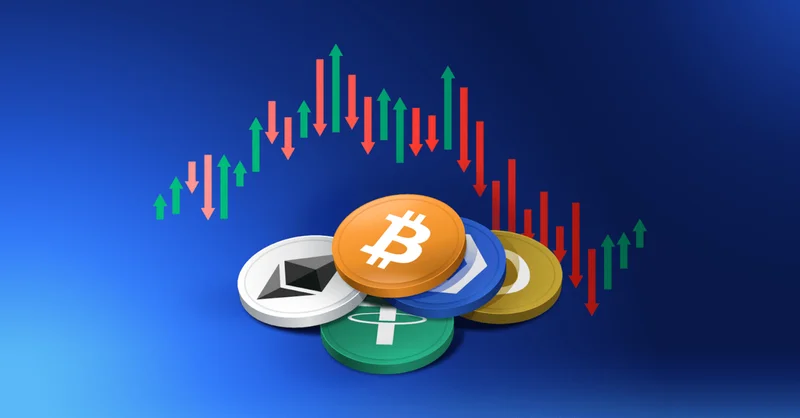It’s easy to see a headline like “Indian tax authority targets over 400 wealthy Binance traders in tax evasion probe: report” and feel a familiar chill. The narrative writes itself: the walls are closing in, the regulators are coming, the freewheeling days of crypto are numbered. It’s a story of crackdown, of an ending.
But what if we’re looking at this all wrong?
What if this isn't an ending at all, but a beginning? I believe what’s happening in India isn’t the story of an industry being brought to heel, but the story of a revolutionary technology taking its first, shaky, and absolutely necessary steps toward global adulthood. When I first read about this probe, my gut reaction wasn't fear for crypto, but a jolt of recognition. This is it. This is the messy, complicated, and beautiful moment the abstract becomes real.
This is the kind of breakthrough that reminds me why I got into this field in the first place.
Let’s rewind for a moment. For years, the world of cryptocurrency has felt like the early days of the automobile. Imagine a world with the first sputtering engines, with visionaries tinkering in their garages, creating these incredible machines capable of changing everything. But there were no roads, no traffic lights, no licensed drivers. It was a chaotic, thrilling, and ultimately limited frontier. You could go fast, but you couldn't go far, and you certainly couldn't build a global transportation system on that foundation.
For a long time, major exchanges like Binance were those powerful, untamed engines. They operated in a global gray zone, a testament to the borderless nature of this technology. But that model, while revolutionary, was never going to be the final destination. To build a true, global financial system—one that can onboard billions of people—you need roads. You need rules. You need trust.
That’s what we’re seeing in India. Binance was blocked late last year for not complying with the country’s financial laws. Then, in a move that I think history will mark as a critical turning point, it paid a $2.25 million penalty and re-entered the market, this time registering as a "reporting entity" with India's Financial Intelligence Unit.

Let's be clear about what this means. Binance is now a ‘reporting entity’—in simpler terms, it has agreed to be a transparent participant in the country's financial system, not an anonymous outsider. This isn't a surrender; it's an integration. The tax probe targeting 400 high-net-worth individuals isn't happening because a government "cracked" the blockchain. It's happening because the biggest player in the space voluntarily built a bridge to the official financial world and is now helping direct traffic across it.
Is this process painful for some? Absolutely. A tax rate that can climb to over 42% is undeniably steep, and it creates enormous friction. But the existence of that tax framework, however imperfect, is a form of acknowledgment. It’s the Indian government saying, "This asset class is real, it generates value, and it has a place within our economy." You don't build a tax code for something you believe is imaginary.
The shift we’re witnessing is a profound one: from a world governed purely by code to one governed by a social contract. The early promise of crypto was rooted in a kind of mathematical purity, a trustless system that didn't require intermediaries. But to change the human world, technology must eventually interface with human systems—with our laws, our institutions, and our societies.
This is the paradigm shift that so many people are missing. The news isn't the 400 traders; it's the fact that a system of accountability now exists where one didn't before. This isn't just about India, it's a blueprint for how this technology integrates everywhere—it means your digital assets could one day be as normal and as integrated into your financial life as your 401(k) or your mortgage, and that's a world of staggering potential.
Of course, this evolution forces us to confront difficult questions. How do we balance the foundational crypto ethos of privacy with the regulatory need for transparency? Is the price of mass adoption a forfeiture of the very principles that made this technology so compelling in the first place?
These are not easy questions, and we must be thoughtful as we navigate them. There's a delicate dance here between preserving the revolutionary spirit of decentralization and building the infrastructure needed for mainstream trust. But I refuse to see this as a zero-sum game. I see it as a design challenge, an opportunity for us to build a better, more inclusive financial system that learns from the mistakes of the old world without abandoning the incredible promise of the new. What does a world look like where this bridge is fully built? What happens when a decentralized, programmable, and transparent value layer is woven directly into the fabric of our global economy?
In the end, the headlines about tax probes and penalties are just noise. They are the growing pains of a technology that is finally becoming too important to ignore. For crypto to fulfill its ultimate promise—to bank the unbanked, to create a more equitable financial system, to power the next generation of the internet—it has to become a little more… well, boring.
It needs to be predictable. It needs to be regulated. It needs to be integrated. The investigation in India isn't a threat; it's a sign of success. It's the most powerful proof yet that we are moving out of the garage and onto the global superhighway. And while the construction phase is messy and loud, what lies on the other side is a destination worth driving toward.